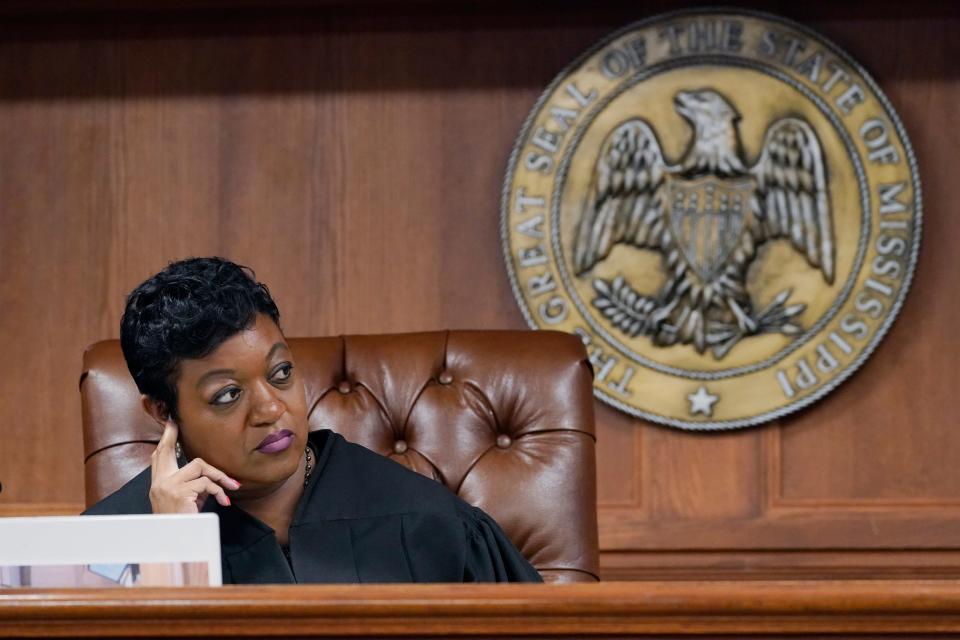Judge wants more info in debate over ARPA funding for private schools
A Hinds County Chancery Judge is set to rule in Parents for Public Schools v. Mississippi Department of Finance and Administration.
Why is Parents for Public Schools suing Mississippi?
The lawsuit claims the Mississippi Legislature violated state law by appropriating $10 million to private schools.
After a Tuesday hearing, Hinds County Chancery Judge Crystal Wise Martin asked attorneys from both sides for proposed findings of facts to be turned in by Monday so that she may rule on a case in which federal American Rescue Plan Act funds could be given to private schools in Mississippi.

Lawyers for Parents of Public Schools argued Tuesday that federal ARPA funds should not be given to private schools in Mississippi.
Martin heard positions from PPS as well as the State of Mississippi in the lawsuit that states that Mississippi is violating its own constitution by directing $10 million in pandemic relief money to private schools. In asking for the proposed finding of facts by Monday, Martin had a sense of urgency to make a ruling as quickly as possible.
MORE ON ARPA: State department of education's plan for federal COVID-19 aid gets approval
How are private schools allowed to receive the $10 million?
In April, Republican Gov. Tate Reeves signed two bills. One created a grant program to help private schools pay for water, broadband and other infrastructure projects. The other allocated the $10 million of federal money for the program, starting July 1.
In the bill, in-state private schools associated with the Mid-South Independent School Association would eligible to apply for grants of up to $100,000. Private schools not associated with the MAIS would not be eligible.
'The more money that goes to the private schools is less money that is going to the public schools'
Joann Mickens, executive director of the national office of PPS, testified that private schools should not receive public funding and that Mississippi's public schools should be the beneficiary of any infrastructure funds, funneled through the Department of Finance.
"We are against any public funds going to any schools other than public schools," Mickens said. "In light of the fact that our schools have been historically underfunded, we only have so much money and if we are using it to the fullest extent, then it hurts public schools."
Mississippi Adequate Education Program was designed with a formula to determine how much money it would take to fully fund public education in Mississippi. Since, it was originally adopted, Mississippi has "fully funded" public education twice, the last time being in 2008.
For the school year of 2022-23, Mississippi public schools will be underfunded by $279 million, by MAEP standards.
Since 2008, Mississippi public schools have been underfunded by more than $3 billion, according to Mickens.
The State of Mississippi argues that since the money from the American Rescue Plan Act is from the federal government and that it is appropriated to the Mississippi's Department of Finance or any individual private school, the money does not fall under the same category the public schools would usually use.
The lawsuit cites Section 208 of the Mississippi Constitution, which prohibits the use of public money for any school that is not “a free school.”
Plaintiff attorneys pointed out that even if PPS wins this suit, it wouldn't necessarily mean public schools would get any of the money in question.
"While I may not be a constitutional lawyer, I do know our constitution states that public funds should not go to private schools, that's any type of public funds. It doesn't make a distinction," Mickens said. "If that's what the law says, then that is what it is."
The American Civil Liberties Union of Mississippi, the Mississippi Center for Justice and Democracy Forward filed the lawsuit June 15 in Hinds County Chancery Court on behalf of PPS, an advocacy group founded more than 30 years ago.
Tanya Martin, parent of a public school student in Crystal Springs, and a member of PPS, testified that her child's school could take advantage of infrastructure money.
Under cross examination, she was asked what would be the problem for the private school in her county to use ARPA money to fix an infrastructure problem that might help with other issues in the area of the school.
"What I do understand is that this is public taxpayer money," Martin said. "Therefore, I pay taxes, which is public funding and it shouldn't go to private schools."
During this year’s legislative session, Mississippi’s Republican-controlled House and Senate made plans to spend most of the $1.8 billion the state is receiving from the federal government for pandemic relief.
Legislators this year also created a program to provide interest-free loans to public schools to improve buildings and other facilities, with money coming from the state. Those loans must be repaid within 10 years. The grants to private schools do not need to be repaid.
In closing, Rob McDuff of the Mississippi Center for Justice said that ruling for the State of Mississippi could mean a slippery slope for funding of private schools.
"The problem is that is may be $10 million here, but if this allowed to go on, then it will be another $10 million … and then it will be for infrastructure and then it will be for books," McDuff said. "The fact of the matter is that the more money that goes to the private schools is less money that is going to the public schools."
This article originally appeared on Mississippi Clarion Ledger: Lawyers argued that ARPA funds should not be given to private schools

